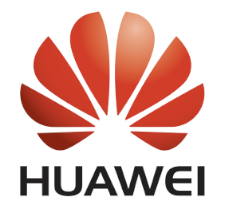Sprint Nextel and SoftBank have pledged not to use equipment from Chinese telecommunications company Huawei Technologies after they merge. Congressman Mike Rogers, a Republican state representative from Michigan who leads the House Intelligence Committee, said today that the two companies told him they would not use gear manufactured by Huawei in their networks.
The Chinese company has repeatedly had to fend off charges of espionage in the past. Though an 18-month White House-ordered review cleared Huawei of spying for China, concerns over Chinese cyber-espionage have ramped up recently. Back in October, the House Intelligence Committee said in a report that equipment from Huawei and its main domestic rival ZTE can potentially give an opening for Chinese intelligence services to use U.S. telecommunications networks for spying. More recently, a provision included in the funding bill signed into law by President Barack Obama this week requires U.S. federal law enforcement agencies to get approval before buying information technology systems made by Chinese companies.
“I have met with SoftBank and Sprint regarding this merger and was assured they would not integrate Huawei into the Sprint network and would take mitigation efforts to replace Huawei equipment in the Clearwire network,” Rogers said in an emailed statement to the Washington Post. Sprint owns a share of Clearwire, which currently uses Huawei gear at the edges of it network, with its core network supplied by U.S. companies Cisco Systems and Ciena.
In response, Huawei spokesman William Plummer told the Washington Post “if government approval of the transaction is somehow contingent on an agreement to restrict purchase of equipment from any vendor based on the flag of heritage, then it is a sad day for free and open global trade, and it does nothing to secure the network. Everyone is global and every company faces the same cyber-challenges.”
Sprint Nextel, the third largest U.S. carrier, and Tokyo-based Softbank are currently awaiting approval for a proposed $20.1 billion merger , and are being reviewed for national security implications by the Federal Communications Commission, the Justice Department, and the Committee on Foreign Investment in the United States.
